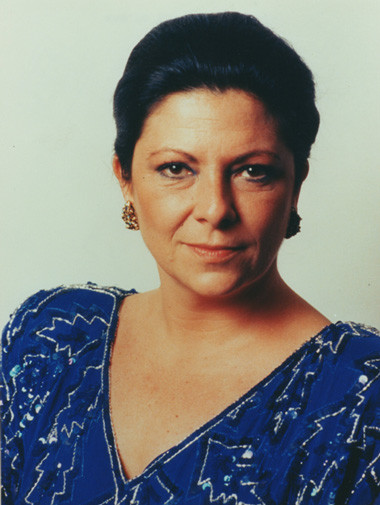

|
Bernadette Manca di Nissa (born 27 September 1954) is an Italian operatic contralto who has sung leading roles in the principal opera houses of Italy as well as internationally. She has appeared at La Scala in Milan, La Fenice in Venice, Teatro San Carlo in Naples, and the Maggio Musicale Fiorentino in Florence as well as at the Royal Opera House, Covent Garden and Gran Teatre del Liceu in Barcelona. Born in Cagliari and a descendant of a noble family, she studied singing privately and later at the Mozarteum University of Salzburg. Initially specializing in Baroque music and Rossini's works (Tancredi, Semiramide, L'Italiana in Algeri, La gazza ladra), she developed a wide-ranging repertoire that includes works by Monteverdi, Handel, Jommelli, Mozart, Gluck (Orfeo ed Euridice), Salieri, Donizetti, Verdi (Falstaff), Puccini, Stravinsky and the 20th-century composer Luigi Nono. She has appeared in the world premières of several of Nono's works, including Quando stanno morendo (1982), Guai ai gelidi mostri (1983), and Prometeo, Tragedia dell'ascolto (1984). During the later years of her stage career, she also taught singing in master classes and courses at the Maggio Musicale Fiorentino, Lyric Opera of Chicago, Associazione Musicale Scaligera and the Accademia Musicale Chigiana, amongst others. She retired from the stage in 2007, after which she has devoted herself to her teaching career. Nowadays, she is professor of Singing at Conservatorio di Cagliari. |
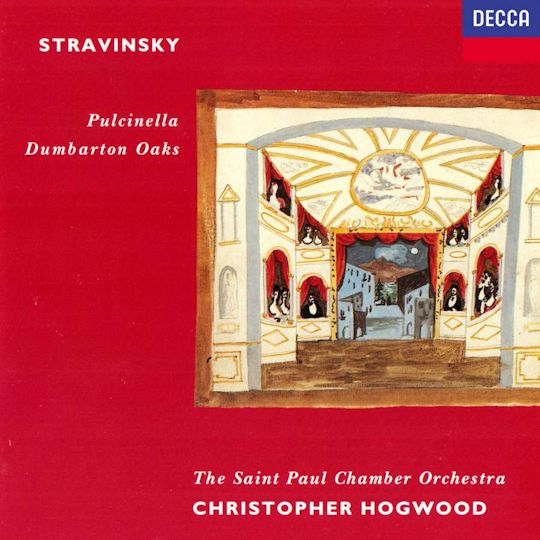 Here is that chat . . . . . . . . .
Here is that chat . . . . . . . . .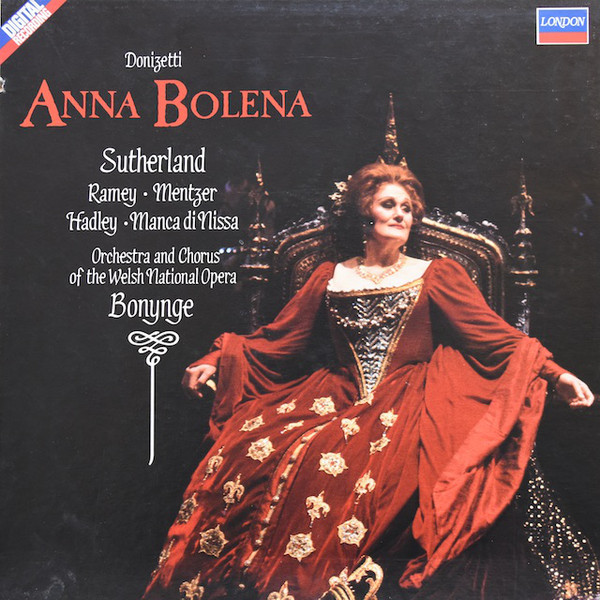 BD: You must be convincing to the audience?
BD: You must be convincing to the audience?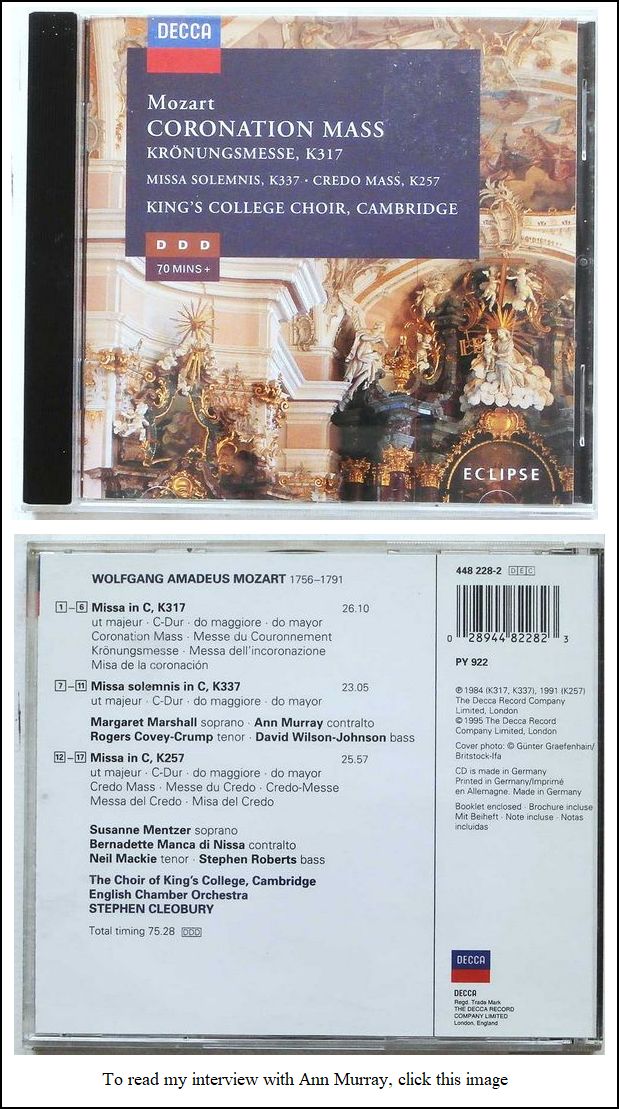 BD: What about number seven, or
eight, or nine?
BD: What about number seven, or
eight, or nine?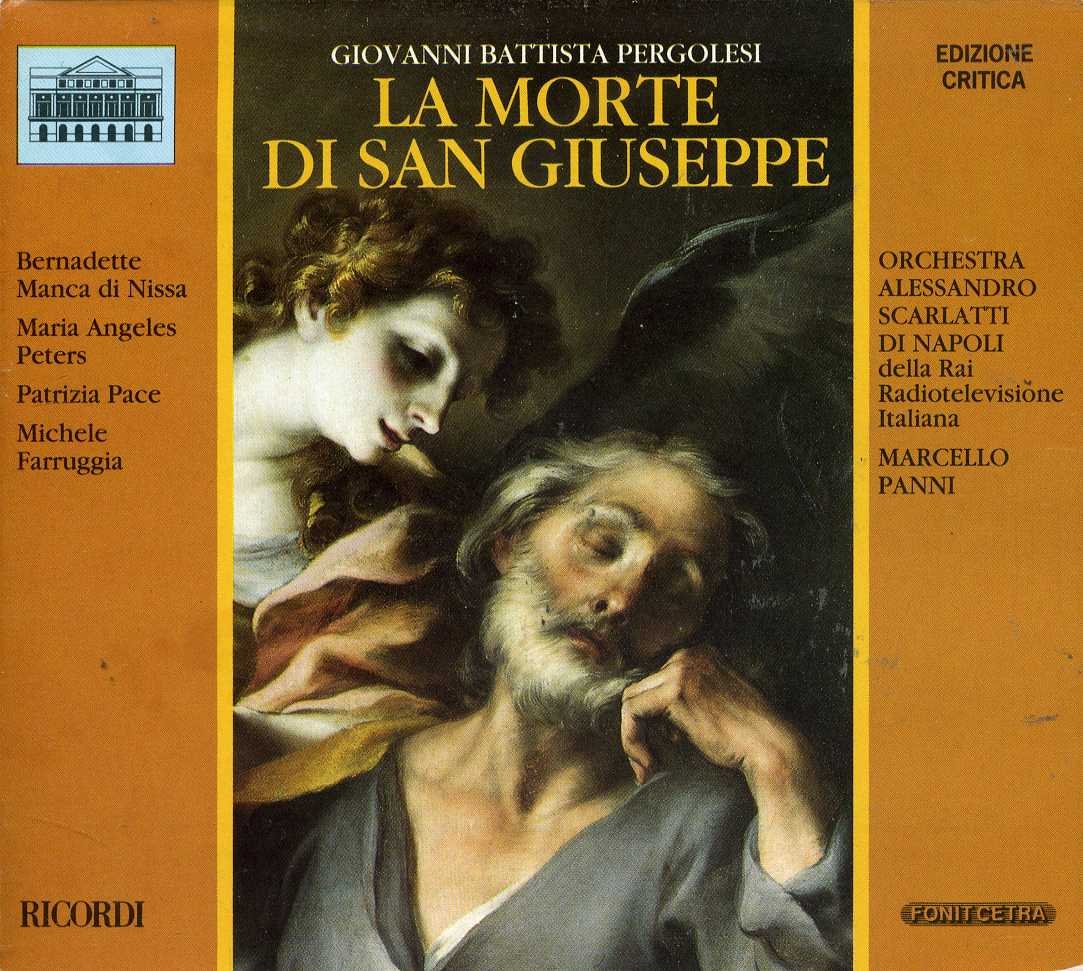
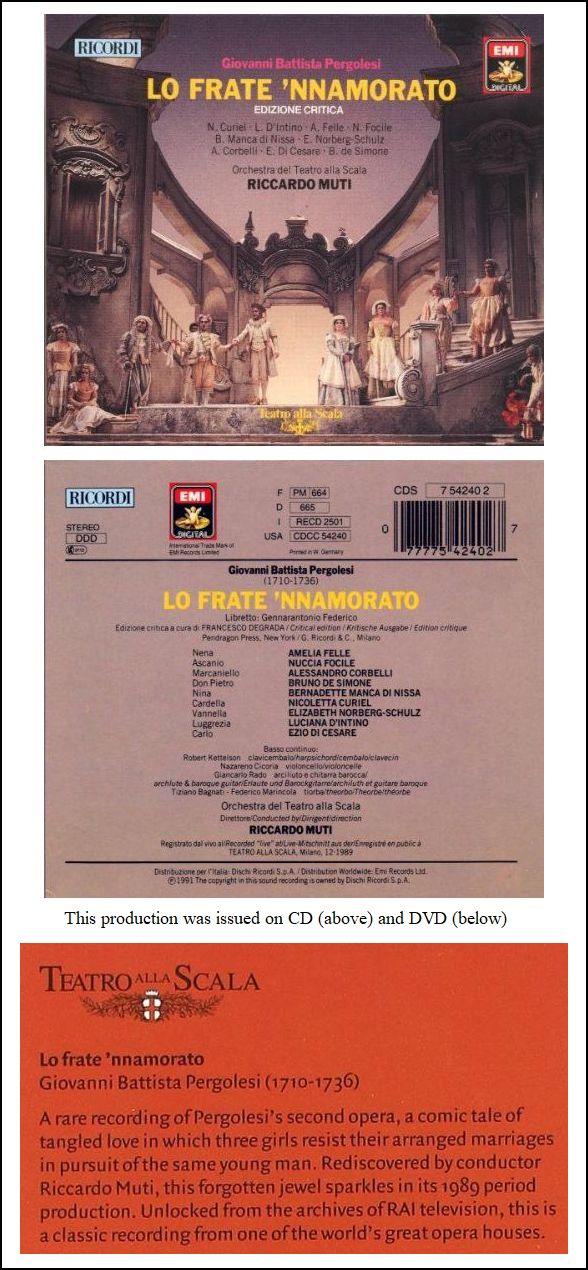 BMdiN: Yes. It’s so interesting to meet a lot of
different people every time. I really don’t like to travel when
it means trains, planes, and luggage. That’s not my thing, but
when you can stay at least ten or fifteen days, you can have normal
relationships with other people. You meet some new people, and I
think it’s very good.
BMdiN: Yes. It’s so interesting to meet a lot of
different people every time. I really don’t like to travel when
it means trains, planes, and luggage. That’s not my thing, but
when you can stay at least ten or fifteen days, you can have normal
relationships with other people. You meet some new people, and I
think it’s very good.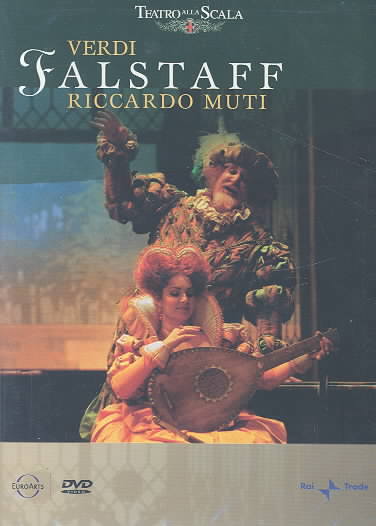
[Editorial review] The present recording was made at a performance in Busseto, Verdi's birthplace, in the Emilia Romagna region. There, in 2001, a whole series of events marked the 100th anniversary of the composer's death. The small, 328-seat Teatro Verdi, built in Verdi's lifetime, provided the ensemble of La Scala, Milan, under its principal conductor Riccardo Muti, with a particularly captivating backdrop, and the mainly young singers -- including 31-year-old shooting star Ambrogio Maestri in the title role, exciting young tenor Juan Diego Flórez as Fenton and internationally acclaimed Barbara Frittoli as Alice -- gave superb performances. The special appeal of this production lies, however, not only in the excellent quality of the music; there is also the fact that the scenery and costumes were recreated from a historical performance of 1913. Back then, Arturo Toscanini had performed the work in the same location to mark Verdi's 100th birthday. The orchestra at that performance was similarly reduced in forces, which means that this performance follows an altogether highly regarded tradition. What is more, this "chamber opera" version complies with the composer's wish for the work to be staged in Sant'Agata (just a few miles from Busseto), and the intimacy of the theatre in Busseto certainly does correspond to the personal character of the work. The lively and witty direction of the young Italian Ruggero Cappuccio combines the historical backdrop with the vitality of modern direction. |
This conversation was recorded in Chicago on October 28, 1996. Portions were broadcast on WNIB when she returned in 1999. This transcription was made in 2019, and posted on this website at that time. My thanks to British soprano Una Barry for her help in preparing this website presentation.
To see a full list (with links) of interviews which have been transcribed and posted on this website, click here. To read my thoughts on editing these interviews for print, as well as a few other interesting observations, click here.
Award - winning broadcaster Bruce Duffie was with WNIB, Classical 97 in Chicago from 1975 until its final moment as a classical station in February of 2001. His interviews have also appeared in various magazines and journals since 1980, and he now continues his broadcast series on WNUR-FM, as well as on Contemporary Classical Internet Radio.
You are invited to visit his website for more information about his work, including selected transcripts of other interviews, plus a full list of his guests. He would also like to call your attention to the photos and information about his grandfather, who was a pioneer in the automotive field more than a century ago. You may also send him E-Mail with comments, questions and suggestions.